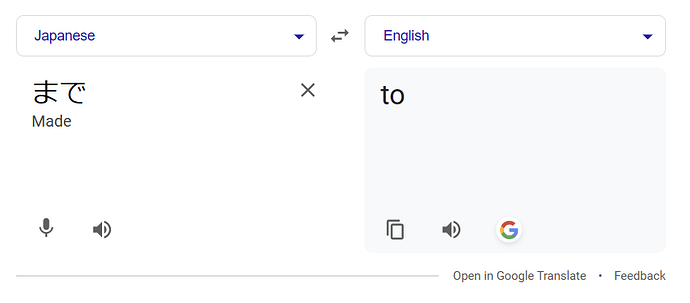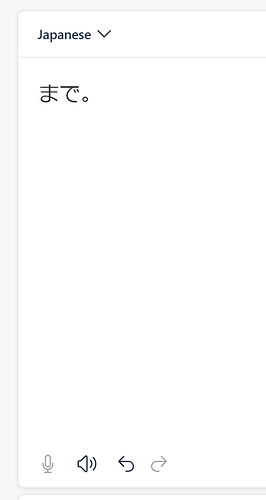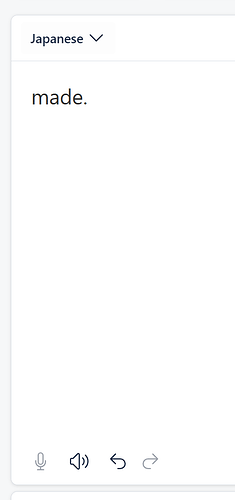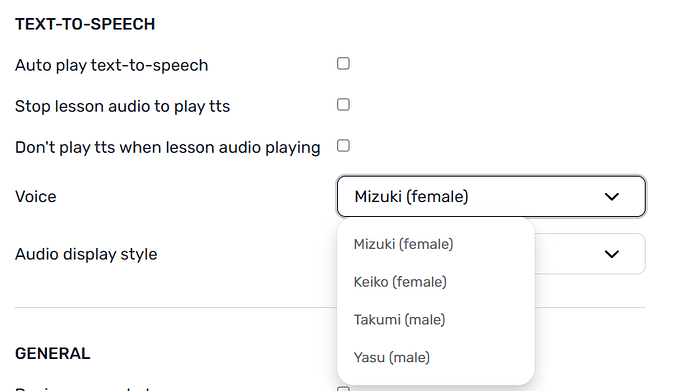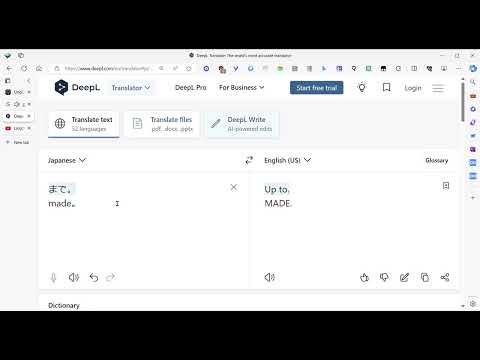The japanese word まで is “ma de” in romaji, pronounced like the English words “Ma” “day.”
Yet LingQ pronounces it like the English “may” “dough.”
I believe this is because the text-to-speech engine is misconfigured.
It is being passed the string “made,” interprets it as an English word instead of a Japanese word (wrong!), and has the Japanese voice pronounce it like it was a loan-word – an English word imported into Japanese. But that’s wrong.
This makes me doubt the pronunciation of every word in LingQ, rendering the feature useless, as far as I can tell.
1 Like
Similar mispronounciation happens for “hi.” If I had to guess, anything that’s a valid spelling of an English word is mispronounced.
2 Likes
我和开发者反馈了这个问题,他们大概会在下次更新推出方案
1 Like
That’s a feature, not a bug. It’s a robot saying the words, don’t sweat it too much though. Reading alongside listening to the imported content works great, personally I use stuff that already has audio rather than generating my own due to the pronunciations. Japanese doesn’t have that many phonetic sounds so it’s easy within a short amount of time to figure out how to say things. You can try changing the Ai voice to one that’s more fitting as well, something that sounds more natural I guess. Also, be sure to set your dictionary to DeepL. Good luck/ganbare
1 Like
No, pretty sure this is a bug not a feature. I understand you’re probably talking about the fallibility of computer voices in a more general sense, but that’s not what’s happening here.
In this case, the robot is pretty clearly interpreting the romaji as English, then pronouncing it using a Japanese voice. So the chosen voice is correct, but the pronunciation is wrong due to the way LingQ is passing text into the speech engine.
If anyone else wants to see this for themselves, try it in a few different places. In particular, notice how DeepL pronounces the romaji “made” vs the hiragana “まで.” Notice that the highlighted word in LingQ is hiragana, not romaji, and should be pronounced as hiragana.
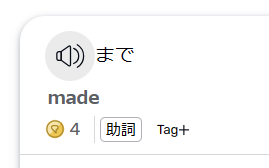
1 Like
(using multiple posts because the forum limits how many images I can put in a single post)
Try in Google Translate
1 Like
The chosen voice is Mizuki.
1 Like
Yeah it does that on mine too, it’s a known issue with the Japanese language AI audio. It’ll pronounce things English-like. That’s all I can really tell you to be honest. Which is why I usually use lessons that have native audio and then just read along with that as it’s more accurate and I can get input better.
1 Like
I don’t have this problem, it’s pronouncing it perfectly on my end. Could you provide a sound clip?
1 Like
This compares the LingQ pronunciation against Google Translate and DeepL
Notice that I’ve asked Google Translate and DeepL to pronounce both:
- The Japanese word “until” written in hiragana
- the English word “made” in the Japanese voice
So you can see what both sound like.
In the case of LingQ, it should not be pronouncing the English word “made.” It should be pronouncing the Japanese word “until” because the lesson has the Japanese word, not the English word. It appears as though LingQ is erroneously passing romaji into the voice engine which yields the incorrect pronounciation.
2 Likes

